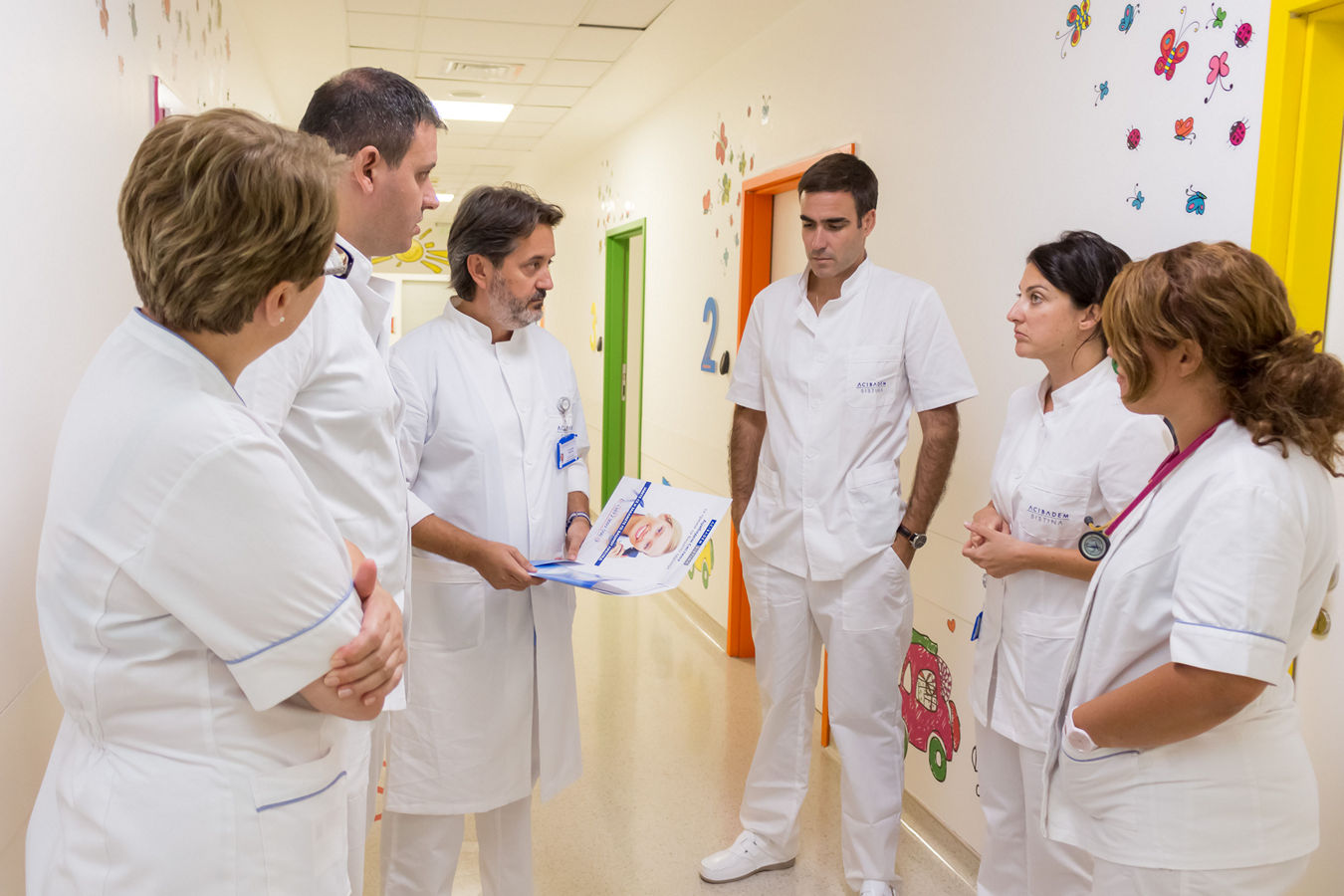Prenatal Diagnosis and Treatment of Heart Defects at Acibadem Sistina
The multidisciplinary approach to treating children with heart defects that was implemented at Acibadem Sistina Hospital with the establishment of the Paediatric Cardiac Surgery Department means that experts from all areas will treat children with such defects at all stages of treatment, i.e. from diagnosis to final treatment. The Department is currently monitoring a newborn with severe heart defect which was diagnosed prenatally. This step makes Acibadem Sistina Hospital once again stand out as a hospital in the country and in the region. Prenatal diagnosis means constant monitoring of the baby’s defect and ability to effectively treat it. This is extremely important in these patients, and approach to treatment is practically a step forward in integral paediatric health care and rarity for hospitals in the region.

Dr. Vladimir Chadikovski says that the intervention will be performed when the baby will be several months old.
“Parents were advised of the risks and outcomes. When the child was born we performed appropriate tests to confirm the diagnosis and decide on further treatment. The baby is currently undergoing home treatment and will be examined every month until four-six months of age, when surgery and complete repairing of the heart defect will be performed. If all goes well, we will have a child with a normal quality of life”, says Dr. Chadikovski.
Dr. Dushko Fidanovski, a pediatrician, says complete child care is one of the visions of Acibadem Sistina Hospital.
“The launching of the Paediatric Cardiac Surgery Department at Acibadem Sistina Hospital means that infants and children with congenital heart defects or other diseases that require cardiac surgery treatment will now be fully diagnosed in one place where they will also receive treatment, whether it is interventional cardiology or cardiac surgery. The integral care of hearth conditions, from precise diagnosis (prenatal and/or postnatal) to final treatment, including post-surgical intensive care, is a top level health care that is rare for hospitals in the region”, says Dr. Fidanovski.